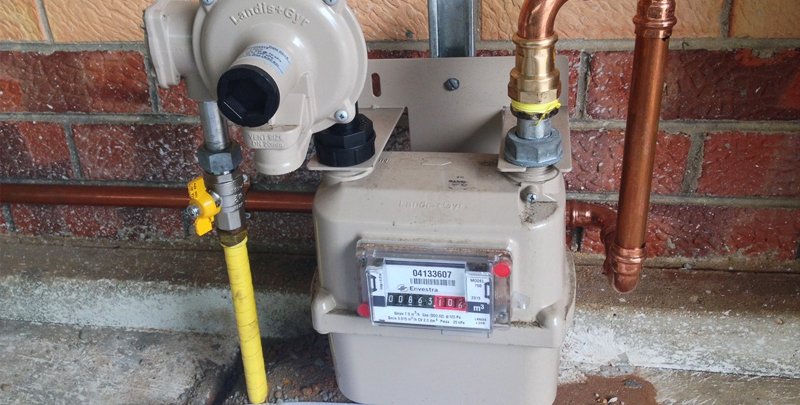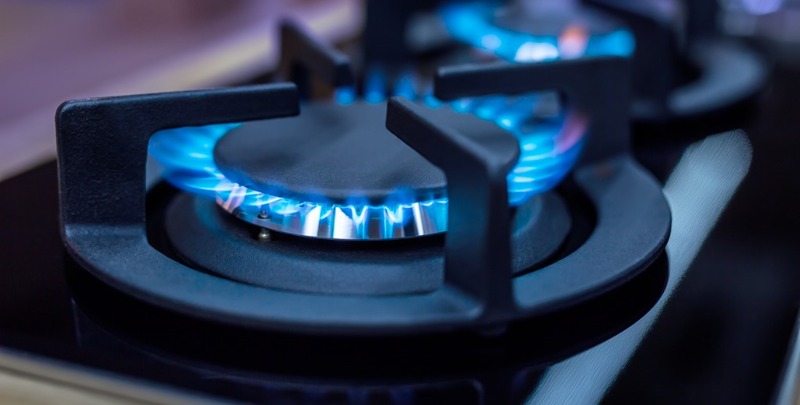
Who to Call for Gas Leaks
Gas leaks that are inside your residence are your responsibility. You need to turn the gas off and contact a licensed gas fitter to repair them.
But if you smell a gas leak outside, it might be the responsibility of your gas provider. Your gas provider has to fix any problems with the pipework to the meter and the meter itself.
So, how can you tell? It’s most likely that what has alerted you to the leak is the strong characteristic smell of gas. If you turn the gas off at the meter, wait for a while, and no longer smell gas, then the problem is most probably yours and you’ll have to contact a gas fitter.
To check further, turn the gas back on. If you get the smell the likelihood is very strong that your pipework is damaged, and you have to get someone to fix it. If you turned the gas off and the smell remains, then definitely contact your gas provider.
Your state government has a hotline for gas leaks as well. The national number to call for gas leaks or any other gas emergencies is 1800 GAS LEAK (1800 427 532).
How Do I Turn Off the Gas?
First, you have to find the meter for your natural gas supply. It can be a garden meter box covered by a plastic or concrete cover with an open window for the meter reader.
It can also be a wall meter box, often located under the electrical switchboard. On a pipe to the meter is a valve tap. When it’s on it’s in a vertical position – straight up and down the pipe. To turn it off, simply turn it to a horizontal position at right angles to the pipe.
If you can’t find you gas meter, get in touch with your gas distributor.
What About Carbon Monoxide?
A gas leak is not the only danger to worry about. There’s also the danger of carbon monoxide poisoning.
Carbon monoxide (CO) is a by-product of any fuel-based heater or cooker – including gas heating systems, wood fires and stoves and kerosene heaters – which can be dangerous if it’s not vented properly.
Unlike the obvious smell of natural gas (which is actually a chemical, mercaptan, that is added to gas), CO doesn’t have an odour and is very difficult to detect. That’s why it’s wise to either purchase a carbon monoxide detector (manometer) or to get your gas appliances checked regularly.

What to Do with a Gas Leak Outside
Gas is much lighter than air and dissipates quickly, so a minor gas leak outside is very unlikely to cause an explosion. A major gas leak caused by breaking a pipe is hazardous and, like a minor leak, will cost you money for gas you haven’t used.
The meter is still working, so you must turn the gas off and contact a licensed gasfitter. Because gas disperses readily, sometimes the only sign that things are awry is a sudden unexplained increase in your gas bill. Other signs are dead patches in the lawn or garden and bubbles on the surface of puddles.
What to Do with a Gas Leak Inside
If you smell gas inside, the first thing you should do is check all of your gas appliances and make sure they are off. That’s generally the cooktop, the oven and the gas heater. Then open the windows and doors because gas needs to be concentrated in a small space to explode.
Explosions do happen and it’s definitely better to be safe than sorry. Gas is actually odourless but a chemical (mercaptan) is added to it so that it has that rotten egg smell. That way we can smell it when it is leaking.
If you smell it, it means you’ve got to do something immediately. An entire school blew up in the US in the 1930s and since then that smell is always mixed in for safety. The staff and students didn’t even know they had a leak.
Here’s a check list of things to do if you suspect you’ve got a gas leak inside:
- Safety first: Remain calm and avoid any open flames, sparks, or electrical switches, including lights and appliances. These can ignite the gas.
- Ventilate: Open doors and windows to allow fresh air in and help disperse the gas. Leave the area if the smell is strong.
- Turn off gas supply: As previously mentioned, locate the gas meter or gas valve on your property and shut it off. You’ll typically find it near the gas line’s entry point.
- Extinguish flames: Put out any open flames or pilot lights on stoves, heaters, or water heaters.
- Avoid electronics: Do not use your phone or any electronic device within the vicinity of the suspected leak. A spark from a phone can trigger an explosion.
- Evacuate: If the gas smell persists or worsens, evacuate the premises immediately. Warn others to stay away and call 911 or your local gas emergency hotline.
- Do not investigate: Leave the gas leak investigation to the professionals. Do not attempt to find the source of the leak yourself.
- Wait safely: Wait for the gas company or emergency responders to arrive. They have the expertise and equipment to assess and resolve the issue safely.
It’s mandatory for gas leaks to be repaired by a licensed gas fitter, so contact the experts at Metropolitan Heating and Cooling and we’ll be around within the hour* to sort it out.
Please note: This information is provided for advice purposes only. Regulations differ from state to state, so please consult your local authorities or an industry professional before proceeding with any work. See our Terms & Conditions here.
Published: 22 April 2020